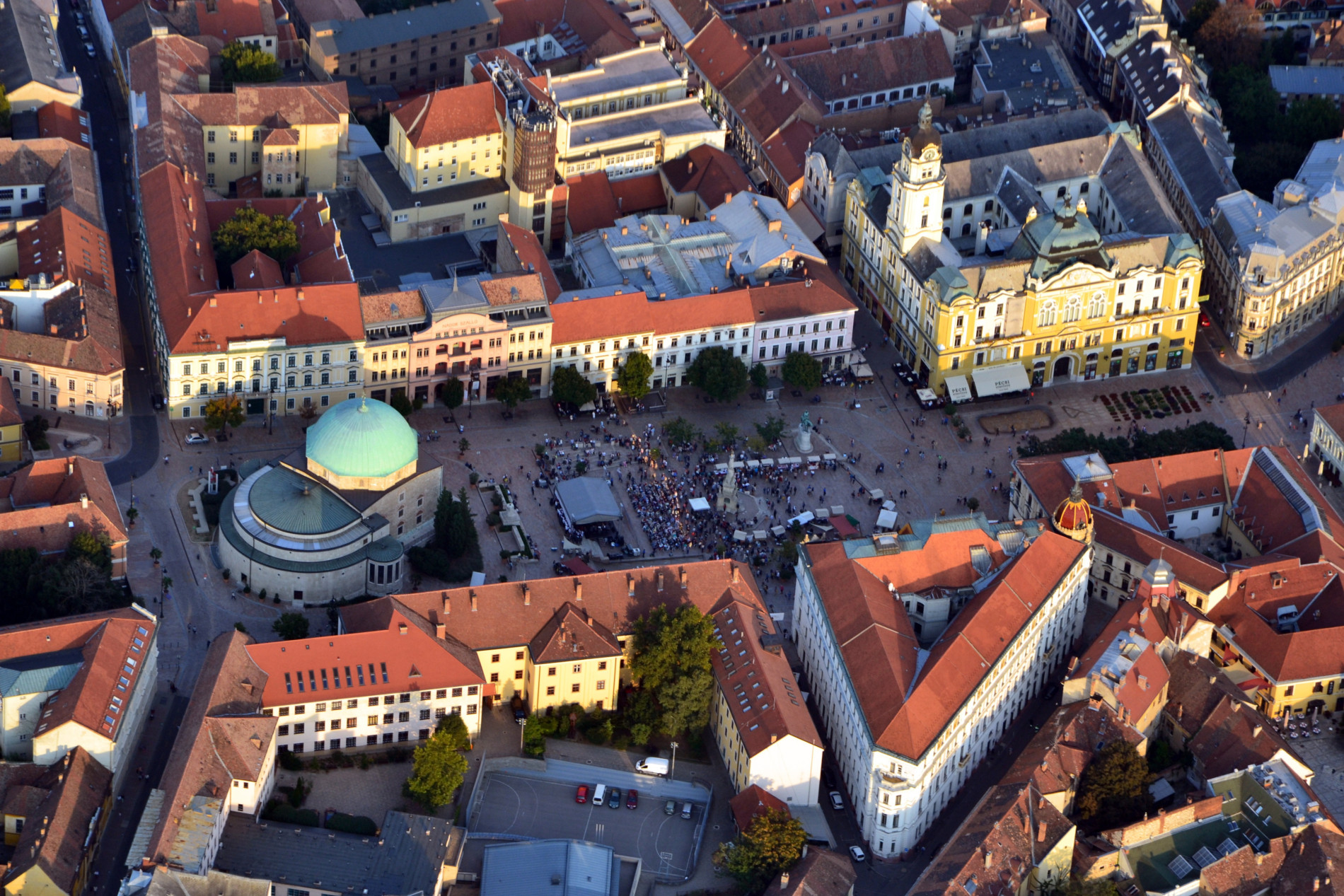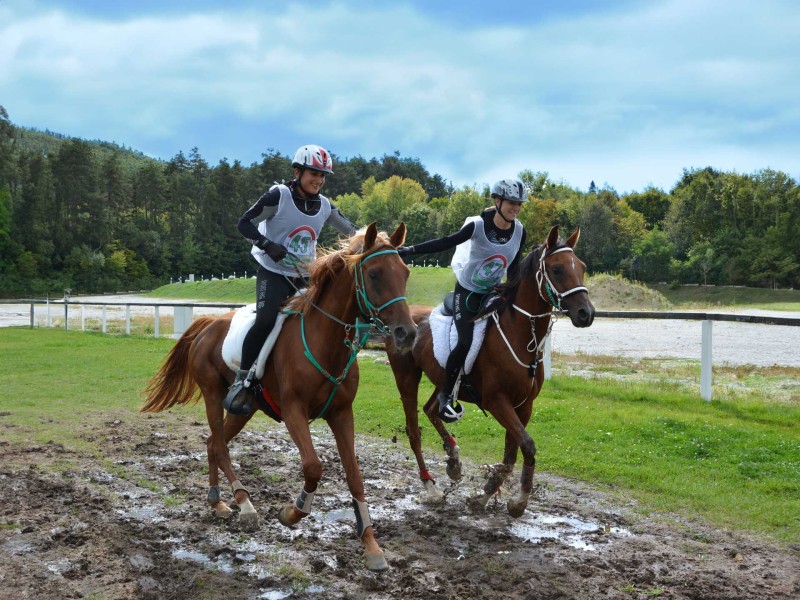
Managing investor relations in Pécs and interregional Balkan investor relations in a “one-stop shop” system.
It is reasonable to say that Pécs and its surrounding region in Hungary currently offer a profitable investment opportunity that has the potential to foster further business development connections with the Balkan countries.
Although the Hungarian market is smaller compared to international markets, the head of Pannova Group, which is based in Pécs and typically manages investments in Transdanubia, stated that based on regional development trends, it is reasonable to say that this region should now be prioritized in terms of investment intensity.
“The qualified workforce, the infrastructure and the location are extremely favourable, which in turn determines the investments and their return”, says dr. Jenő Varga, the owner of Pannova Group, who believes that one of the most important areas in this respect is Pécs and its surroundings, and more broadly the South Transdanubian region and its interregional surroundings.
This geographical and economic area is in a sense on the edge of the European Union, from where it also acts as a logistical hub for the free movement of goods and services to and from Slovenia, Croatia, Serbia, Bosnia and Herzegovina, Montenegro, Northern Macedonia and Turkey.
“I have always been adamant that infrastructure investments for the economic development of the region — whether interregional motorways or cross-border railway development — should start immediately! We must not wait!”, emphasised Jenő Varga.
The Growing Role of Pécs: Major Transport Investments Towards the Balkans
It is clear that the currently known and already implemented infrastructure developments in the region, which are expected to be implemented within 1-2 years, will benefit this area. Pannova Group has also noticed that interested international companies are increasingly seeing investment opportunities in the region.
Instead of the EU development trends seen in the past, which set investment targets mainly in a west-east context, recent years have seen a growing demand from central and eastern European countries for north-south transport development. This has now led to concrete action. The Hungarian government recently announced that in connection with the southern link of the M9 motorway, the preparation of a new border crossing point for freight traffic at Tompa and the related expressway section will start, and the preparation of the M9 expressway has also started with the link between highways 51 and 53 to Tompa. This means that the growing economic traffic through Serbia will have a new gateway next to the currently available Serbian-Hungarian border crossing at Röszke.
The M9 motorway leads to the Szent László bridge over the Danube at Szekszárd, where you can connect to the M6 motorway to Pécs and then the M60 motorway.
In the meantime, the extension of the M6 motorway to Croatia will be completed shortly, all the way to the border, and the missing section on the Croatian side is expected to be completed by spring 2025. The link between Budapest and Ploce in Croatia will then be provided by the VC pan-European corridor, which will connect the M6 motorway in Hungary with the A10, A5 and A1 motorways in Croatia and Bosnia.
Pécs and its region have thus become a hub by land, water and air, and intermodal freight transport is expected to become available in the region.
Paradigm Shift:
Investment and Industrial Development
Hungary has been a member of the European Union for 20 years, which provides the region with the security of predictability and plannability for investors from outside the EU.
“While the rest of the country is already saturated, Pécs and its surroundings have clearly become a top development priority, so I would definitely say that it is now worthwhile for big companies to invest here”, emphasised Jenő Varga, adding that the role of Pécs as the centre of the economic region is now unquestionable.
“When I talk with Hungarian and foreign investors, I always say that Pécs and its region are facing a paradigm shift, because economic growth can be the highest here in terms of productivity”, said Jenő Varga. He also added that the capacity for local energy use is also considerably more available here than in other parts of the country.
“The capital invested in regional development allows for more growth here than anywhere else!” – emphasised Jenő Varga.
University Impact:
Vocational Training Capacity for a Skilled Workforce
According to Jenő Varga, a further competitive advantage of the region is that primary, secondary and university education can provide a stable educational background even for non-European workforce. “Significant vocational training centres are available in the region, which are able to integrate the workforce into the production capacity of the companies locating here. The value of this vocational training will increase in the coming years”, says Jenő Varga, who believes that Pécs can be a national model in this respect. It is also important that the region currently has the best availability of white-collar, intellectual workers in the country, with a strong university background.
While Pécs and the South Transdanubian region, as well as the surrounding interregional countries, still have a mobile workforce, it is also an undeniable fact that the intensive industrialisation of recent years has led to the emergence of procedures and regulations in Hungary that are now capable of involving hundreds of thousands of foreign workers – even from third countries – in production processes. In other words, Pécs and its region have the added advantage of being able to benefit from the experience of previous investments in Hungary.
Centuries of Impact of the University of Pécs on the Region
In international comparison, the 657 years of university education in Pécs in 2024 is also significant. While the University is currently one of the largest employers in the city, it is increasingly linked to the business sector and the local labour market. More than 22 thousand Hungarian and almost 5 thousand foreign students study at the 10 faculties of the University of Pécs.
Moreover, it’s important to highlight that the significance of the region’s special Balkan connections is exemplified by the University of Pécs’ strategy until 2030, which specifically emphasizes the university’s pivotal regional role and its dynamic relations with the Balkans.
Pécs, the City of Culture:
European Quality of Life
Pécs is not an average regional centre. It is certainly different in that European cultural values have been present here from the very beginning. There are Croats, Slovenes and Serbs with European, Judeo-Christian cultural roots who live in the immediate inter-regional vicinity of the city, which is important for the culture of the available workforce.
The multicultural religious character of Pécs is evident in its history, where many nationalities have coexisted, including Christians, Catholics, Reformed Protestants, Greek Orthodox Catholics, Jews, and Muslims. The presence of Muslims is also reflected in the city’s built environment. This diversity is the foundation of the city’s welcoming nature.
Pécs offers a background that significantly enhances the quality of life, making it particularly attractive for the workforce. The city has a high-quality university education, which is also appealing to foreign students. Additionally, Pécs is renowned for its outstanding healthcare institutions, and its various university faculties consistently produce highly qualified professionals with fresh knowledge.
“We are in Europe and this is a major competitive advantage, both for European companies and for companies from third countries.”
– underlined Jenő Varga, who said that the availability of an English kindergarten or an English-speaking taxi driver could be a decision criterion for foreign investors.
The strong cultural roots of Pécs enable it to offer a high and European quality of life to the employees of the investing companies, be it the performances of the Pannon Philharmonic Orchestra or the wine culture of Villány in the South Baranya region.
These assets have created the conditions that have made the region a prime investment zone.
It is time to
RE-INDUSTRIALISE PÉCS, South Transdanubia and Baranya County!
This is a historic moment, it has to happen now!
– urged Jenő Varga, who beleives that this can bring about a breakthrough from underdevelopment, integration into the domestic and international economy, and a broad-based rise in living standards. This in turn will have a knock-on effect on local resources and quality in cities and villages, culture, science, education, health, etc.
In addition to all this, Jenő Varga stresses the importance of Pannova Group’s welcoming of investors and national and foreign companies wishing to build factories in the completed industrial area (with water, electricity, rail, etc.).
Pannova grouP:
Let’s align our perspectives!
Pécs and its region are receptive to globalisation and international business partnerships.
Based on its international contacts and its knowledge of international business language, Pannova Group uses its “hard” and “soft” tools to help foreign investors succeed.
This means providing a full range of legal, environmental, banking, accounting and tax advice, with representation in Hungary and internationally, including direct involvement and implementation in these areas.
“This can be representation in the field of construction, environmental protection or even taxation, but we are also able to be directly involved in various economic services such as accounting, banking, contacts with public authorities, employment contracts for foreigners, or even representation in legal and litigation matters and management of other economic relations, warehousing, energy management solutions that investors may need”, says Katalin Varga, one of the owners of Pannova Group, who adds that Pannova Group can provide offices and space for these tasks, and also offers general management and organisational development consultancy for investing companies. In addition, leveraging its local knowledge and network of contacts, Pannova Group can also offer suggestions or solutions for situations such as identifying the right professionals to contact for specific problems or needs. In addition, the company is able to mobilise and involve the best experts in the field in the necessary processes, tailored to the needs of the investor.
Katalin Varga also added that it is part of Pannova Group’s overall culture of work organisation that it is constantly observing, changing, interpreting and learning from its own and others’ experiences, and incorporating their impact into its day-to-day operations.
“Networking is more than just an impersonal connection; it’s about trust! It’s the primary means through which we build and maintain trust with both our partners and local contacts, as well as within the economic environment.”
– emphasised Katalin Varga in conclusion.
Summary
Pécs and the South Transdanubian region are not merely developing areas, but rather economic and cultural hubs offering stable and diverse long-term opportunities for investors. Those who recognise the potential of the region in time may gain a competitive advantage on the future economic landscape of Hungary and Central Europe.



